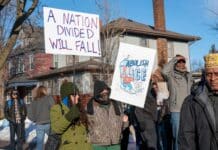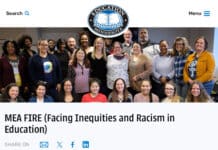More than 5,000 Minnesota residents voiced concerns about the proposed social studies standards that are currently undergoing revision by the Minnesota Standards Review Committee.
Minnesota’s 2011 social studies standards are undergoing changes this year, for implementation in schools by fall 2025. The new standards center around LGBT issues, race, and climate change, and remove benchmarks for World War I and World War II, the American Revolution, and the Civil War.
Under a campaign called Raise Our Standards, a letter from the Center of the American Experiment was sent by over 5,000 Minnesotans to the review committee. The letter states that the proposed standards “eliminated many important aspects of history and civics and replaced them with controversial and hard to measure standards that ask students to ‘recognize unfairness’ and ‘develop respectful awareness.’”
The letter recommends specific changes to the amended standards that would “restore balance” to the current draft.
Those who sent the letter believe that “replacing specific mentions of flag etiquette and the Pledge of Allegiance with a vague reference to how people show patriotism does not serve our students.”
They also acknowledged that studying racism is “relevant,” but said the new standards frame the topic as a “political and controversial” issue, and it comes at the price of cutting “more important topics.”
Missing benchmarks in world history — the Holocaust and the history of communism and socialism being a few — and Minnesota history are other areas of concern, according to the letter.
The Minnesota Standards Review Committee hosted a virtual public meeting Jan. 11 to discuss feedback on the standards, resulting in members of the committee calling the letter “white supremacy.”
In a recording of the meeting obtained by the Center of the American Experiment, Director of Academic Standards Doug Paulson can be heard disregarding the letter, saying he is “impressed” with the committee for “rejecting this white supremacy language.”
He noted that there was “a lot of other really important feedback” that relates to what they “know is best practices, what we have evidence [of] is best practices.”
Another committee member, Danyika Leonard, questioned if a “select-all delete sort of thing” was the best option to deal with the feedback received from thousands of Minnesota residents and parents.
READ:
